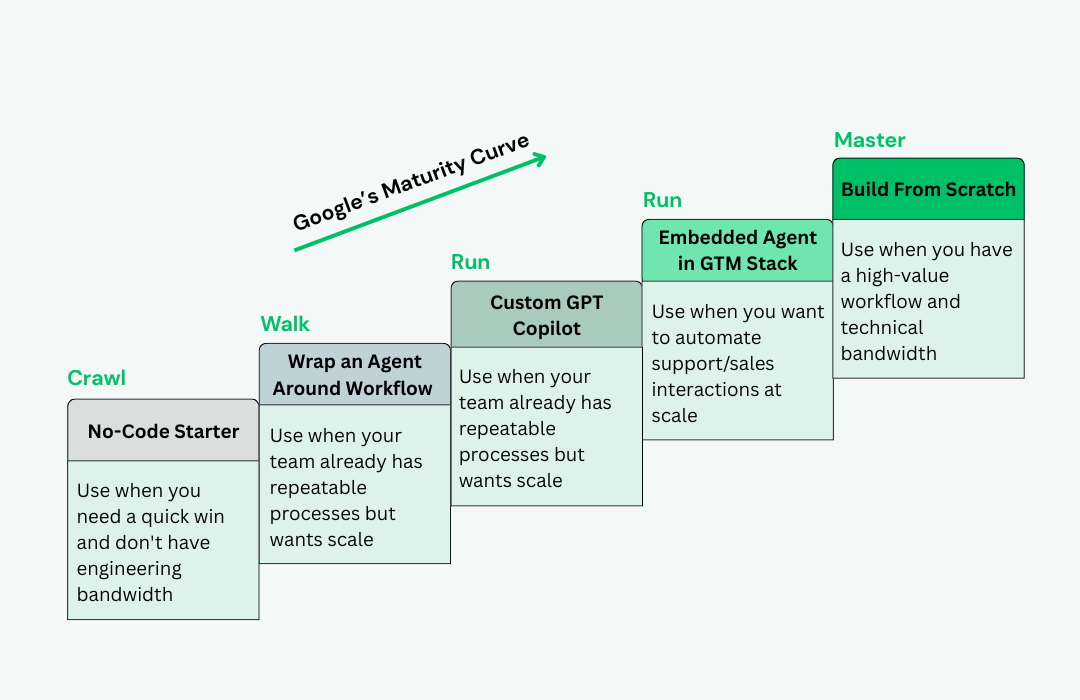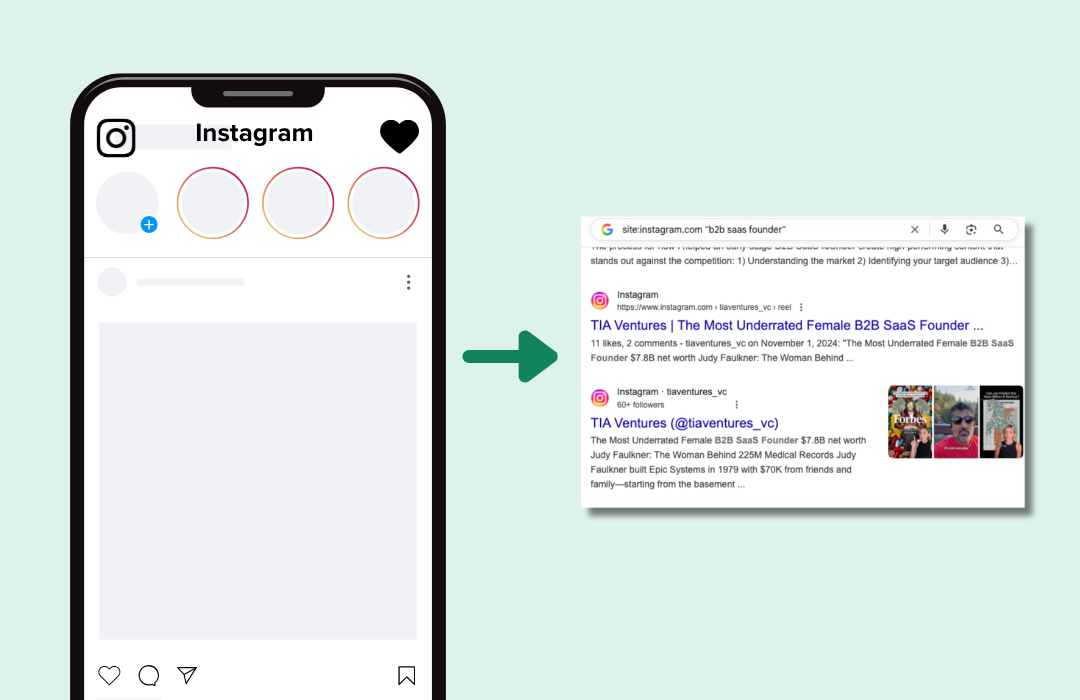The cost of hiring the wrong SDR is high. The longer and more complex the sales cycle is (like in enterprise sales), the longer and more complex the onboarding and training process will be. Making a mistake and onboarding the wrong SDR can result in a six-month gap in your pipeline.
So, how do you ensure you’re hiring the right SDRs for your team?
By hiring for the skills you can’t (or don’t have time to) teach them.
I’ll walk you through my process to identify these difficult-to-teach skills, and how you can use that to find your perfect enterprise sales rep.
Determine the Skills You Need
Over the past few years, I’ve had the pleasure of developing a remote SDR team (almost) from scratch. Our organization was an enterprise sales organization with a 9+ month sales cycle. In this environment, an SDR must be able to:
Speak with very senior people at large financial institutions and answer their questions intelligently
Connect and nurture 10 to 40 people in the same organization, understand the influence map, find the pain, navigate budget and timeline, and convert to an opportunity
Act as a quarterback and pull the right internal resources to help qualify a lead
Not an easy task, especially since most SDRs are young and don’t have much domain expertise or enterprise sales experience.
To solve this problem, I’ve developed this process to qualify my candidates based on the skills I cannot teach them.
You see, I’ve never met anyone who was born with the knowledge of how to automate consumer lending processes or how many times one needs to nurture a prospect and how. Every company needs to, and should, spend the time teaching their SDR’s about their domain. But there are some skills I simply don’t have the time or ability to teach.
These are skills like:
- Learning
- Researching
- Curiosity
- Convincing
- Writing
- Being passionate
Depending on your industry, sales cycle, and even just your personal preference, this list of skills may differ slightly. Take some time to put together your list of difficult-to-teach skills, and you’ll already be that much closer to the perfect hire.
Now let’s find out how you can identify whether a candidate has these skills or not.
Look for Signals in the Resume
Your search begins with the standard process of reviewing resumes and scheduling the initial 30-minute interviews. Because I’m in enterprise sales, I’m looking for someone with a long tenure. In enterprise sales, it takes a few months, if not years, to nurture a prospect and convert them into an opportunity.
I’m looking for someone who spent three years in their previous job. That tells me that they know how to build relationships. They understand the dynamics of the corporate world. They took the time to learn the domain of the company they worked for.
Domain expertise is always a bonus, but if you’re looking for a young SDR, it can be hard to find, since most young SDRs only stay with a company for a year or two.
Qualify SDRs in the Initial 30-Minutes Call
It is very hard to qualify a candidate in 30 minutes. But there are a few things I’m looking for. I’m looking for a story or an example that shows me this candidate is taking the initiative.
I once had an incredibly quiet candidate. I could tell he was great, but he was very shy in front of me. So, I asked him to tell me about a special experience in college.
He told me that he and his friends started a little business. They delivered breakfast to their neighbors — families with kids who were willing to pay for fresh bagels and pastries delivered first thing in the morning. They worked out the business plan, the budget, the marketing, the operations and grew the business significantly in just a few weeks.
Love it!
He showed me a different side of himself. An entrepreneur. A risk-taker. But he also showed me he was someone who approaches ideas with a lot of research and planning.
I interviewed another young lady who knew nothing about FinTech, but there was something very unique about her. I asked her to tell me about her hobbies. She told me she got into healthy food and started an Instagram account to share her journey and experience learning how to cook healthy food. She grew her followers to thousands in just a few weeks.
That told me she is very articulate, creative, and charismatic. I can’t teach that, but I can teach her FinTech.
Keep it short
Set up just one 30-minute interview for SDRs. Don’t force them through a long process of 30-minute interviews with ten different managers where the candidate has to answer the same questions again and again.
When you’re dealing with young SDRs, this is very important. Interviews are stressful for all of us, but they’re even more stressful for them. Save time for the candidate by coordinating a call with a few of your colleagues after the interview, and try to reach a quick decision on whether you want to move forward with them or not.
Qualify SDRs Further With a Project
Once you’ve decided on your top candidates, ask them to prepare the following things:
Pitch an imaginary prospect
Have them read through your website and come up with a convincing pitch to an imaginary prospect. Let them know that you’re not looking to test their PowerPoint skills, and that you know they’re not experts in your product or domain.
Your goal is to evaluate their research and learning skills and see how they approach new subjects.
Draft an Email
Have them come up with a buyer persona your company would typically target and draft an email for that persona. Again, this persona doesn’t have to be correct (Although if they have good learning skills and if your website is done well, they should be able to find the right persona). But the email should be written well and be very convincing.
Find a Prospect
Lastly, ask them to go through LinkedIn and come up with ten actual people they would target on day one and explain why. Again, with this test, you’re exposing research and learning skills.
When you ask your candidate for these three things, they will typically ask when you need all of this and when they should be ready to present it to you.
I usually let them decide.
The passionate candidates will ask for just a couple of days.
This process has helped me eliminate people with no curiosity or spark, people with bad writing skills, and people who are slow or lazy. It’s helped me make a decision based on actual skills rather than a fun, nice, or dynamic interview conversation.
I’ve had many awesome initial interviews with SDR candidates that completely surprised me with terrible writing skills. And I’ve had dry, boring conversations with people that presented the most compelling sales pitches and emails I’ve ever seen.
RELATED: Use This Interview Scorecard Template to Win the Top Sales Talent
Let’s Wrap Up
Finding the right fit helps you build #tenure in your team, which is crucial for Inside sales jobs with a long, complex, and expensive onboarding process.
Your new SDR may not initially understand anything about your technology, but if they have the right traits, they’ll learn quickly and become experts in your field .
If you want to find a superstar enterprise SDR, qualify for research, curiosity, and passion. Look for stories that show creativity and initiative. Because those are the skills that separate a good salesperson from a great one.







